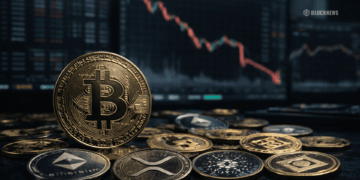To improve risk management and due diligence processes, Singapore regulators work with conventional banks to provide universal criteria for vetting potential consumers in the cryptocurrency market.
- Due to its adaptable tax laws, availability of a varied pool of tech expertise, and convenient location, Singapore has established itself as a hotspot for cryptocurrency enterprises.
- To reduce their risks of breaking local rules and regulations, it is anticipated that the majority of banks will abide by the recommendations.
New Guidelines from MAS
For the past six months, the Monetary Authority of Singapore (MAS) has collaborated with conventional banks to create standardized standards for vetting new customers from the cryptocurrency sector. The partnership intends to assist regional banks in streamlining the process of creating accounts with service providers of digital assets.
The partnership will concentrate on risk management and the processes for opening bank accounts for cryptocurrency businesses after conducting due diligence. Stablecoins, non-fungible tokens (NFTs), and mobile gaming or streaming credits will all be covered in the rules. The findings of the partnership will be released within the following two months.
The possible rules will only be legally obligatory for banks because they can rely on their risk analysis. Banks will continue to have the authority to decide based on the standards and their risk analysis.
Singapore’s Attraction as a Crypto Business Hub
Due to its accommodating tax laws, accessibility to a wide range of IT talent, and accessible location, which enables firms to work throughout the area in Asian time zones efficiently, Singapore has established itself as a hub for cryptocurrency businesses. Nevertheless, in late 2022, the MAS suggested prohibiting providers of digital payment token services from providing customers with “any credit facility,” including fiat currency and cryptocurrencies. Local crypto lobbyists expressed their disapproval of the plan.
Uniform Screening Standards in the Crypto Industry
Because cryptocurrencies have the potential to be exploited for illegal activities like money laundering and terrorism financing, uniform screening rules for the crypto business are required. When opening accounts for Bitcoin businesses, banks will find the regulations helpful in their risk analysis and due diligence processes.
They will also contribute to ensuring that the sector complies with applicable local rules and legislation. The rules will not be legally enforceable, but it is anticipated that most banks will abide by them to reduce the likelihood that they will break local laws and regulations.
Conclusion
A step in the right direction toward regulating the cryptocurrency industry is Singapore’s partnership with established banks to create universal standards for vetting prospective customers from the sector. When opening accounts for crypto companies, the recommendations will help banks with their risk analysis and due diligence processes. They will also contribute to ensuring that the industry complies with local laws and regulations.
Most banks are anticipated to abide by the rules to reduce their risks of failing to comply with local laws and regulations, even if they won’t have any legal impact on banks. Due to the nature of cryptocurrencies, which can be utilized for illegal activities like money laundering and financing terrorism, universal screening requirements for the crypto business are required.














